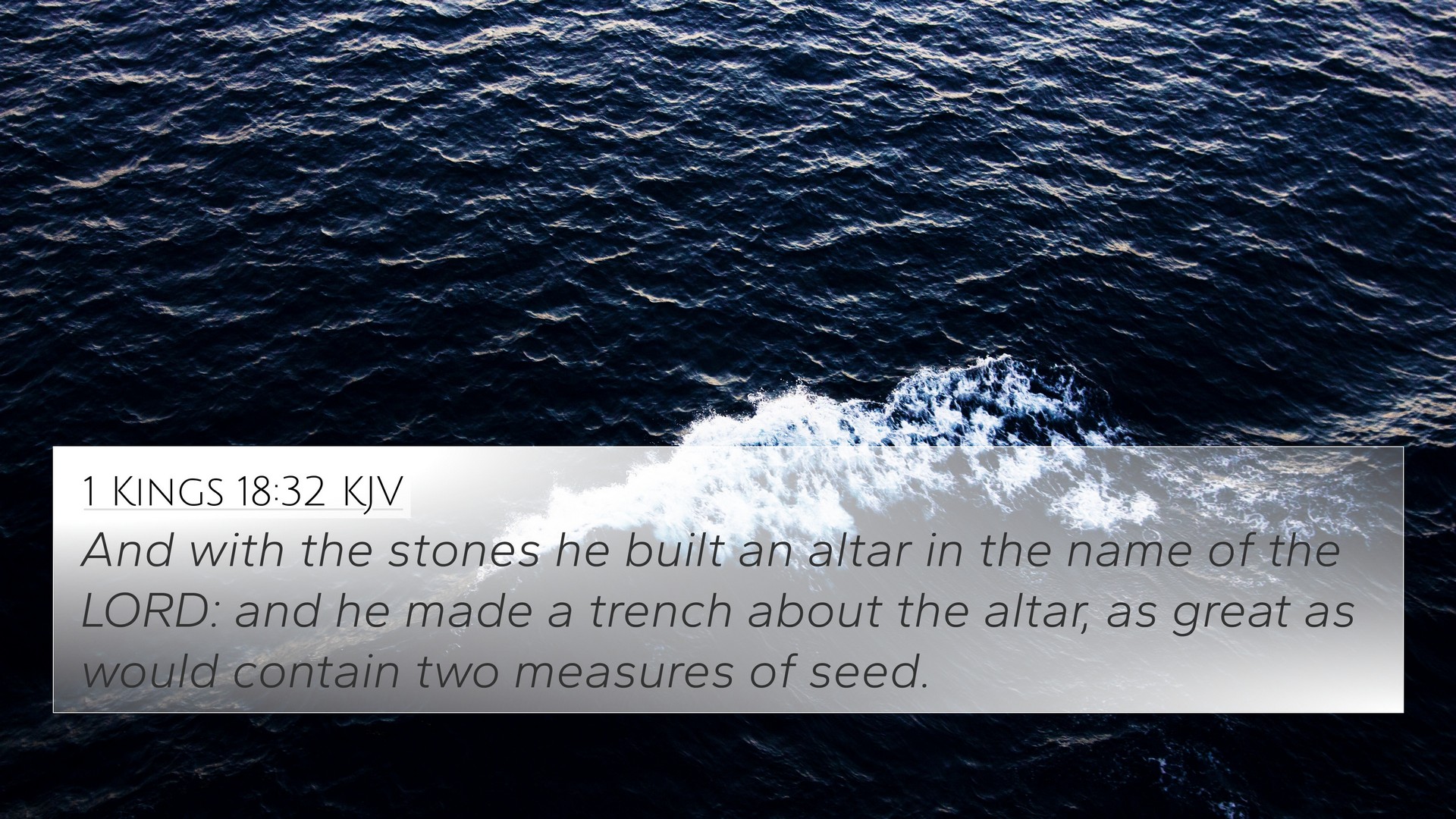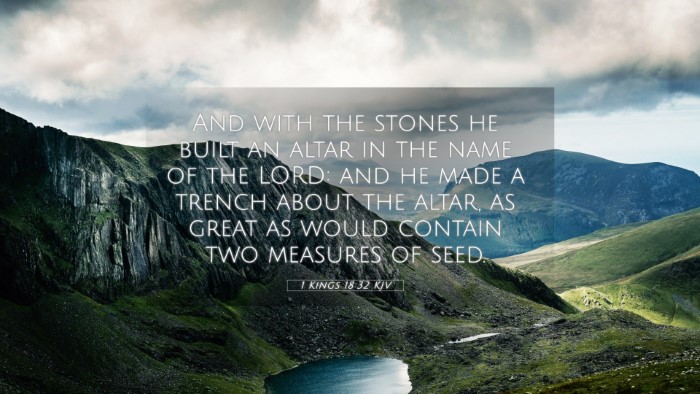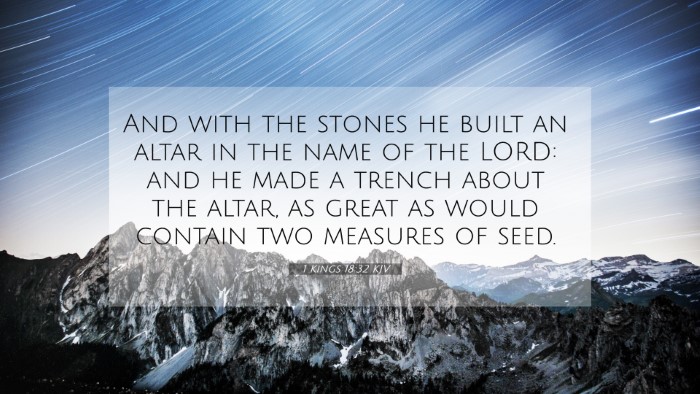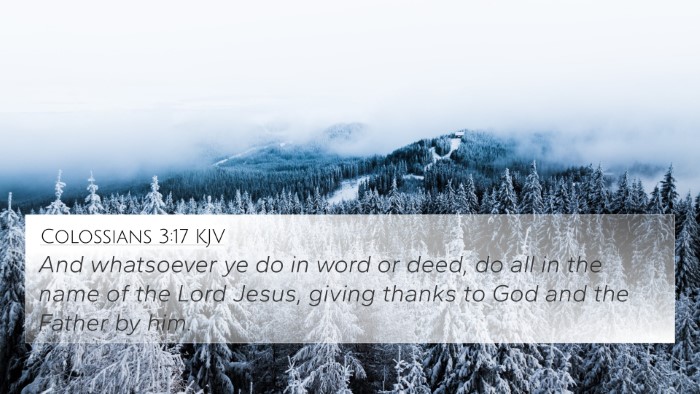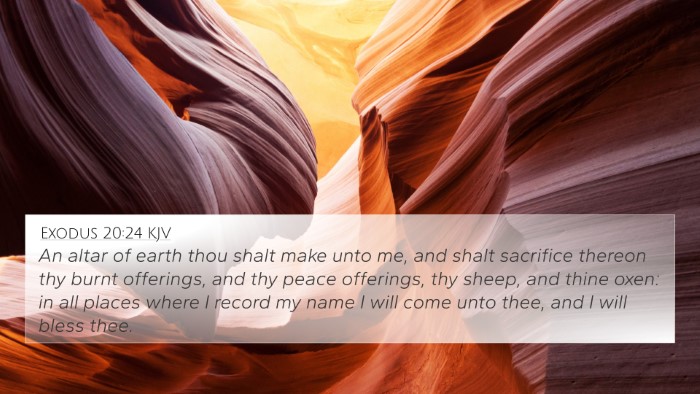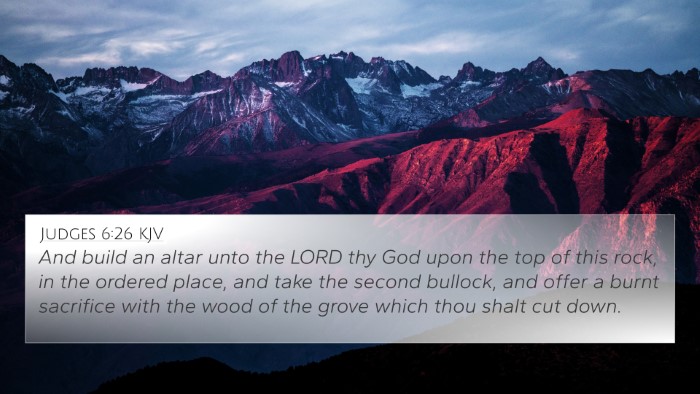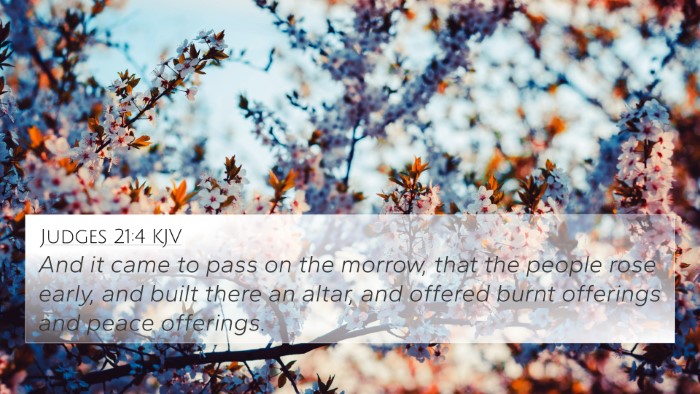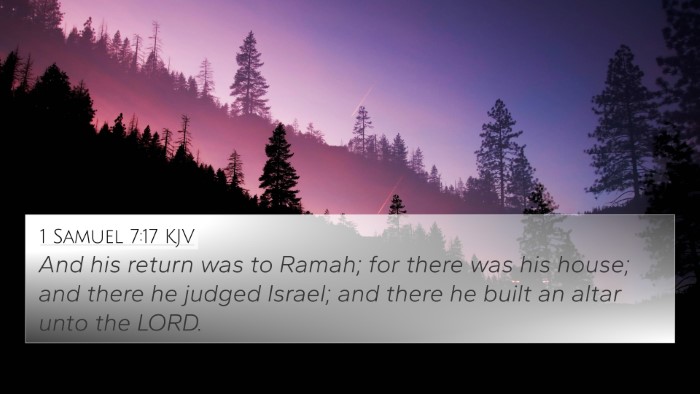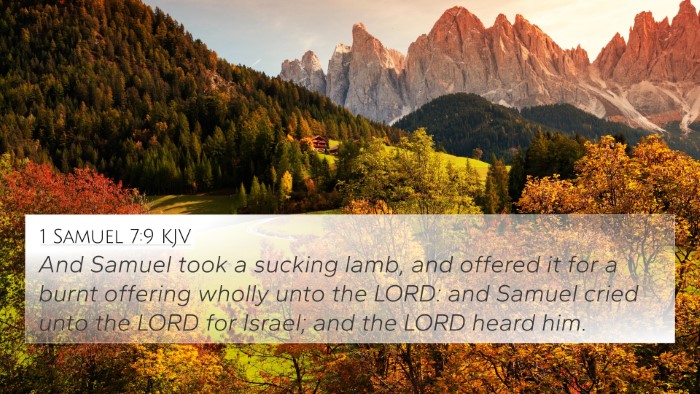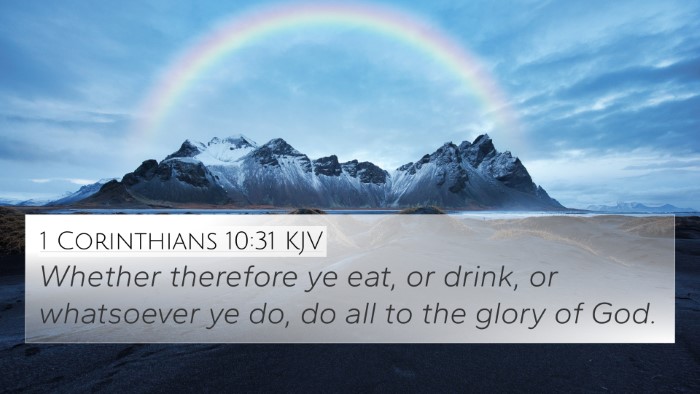Understanding 1 Kings 18:32
Verse (1 Kings 18:32): "And with the stones he built an altar in the name of the LORD: and he made a trench about the altar, as great as would contain two measures of seed."
Overview
This verse narrates a significant action by the prophet Elijah during his confrontation with the prophets of Baal. By building an altar to the Lord, Elijah not only demonstrated his faith but also sought to prove Yahweh's supremacy over the false god Baal. The trench he made around the altar signifies preparation for the miracle that was to unfold, illustrating meticulous faith and obedience.
Commentary Insights
-
Matthew Henry:
Henry emphasizes the importance of the altar built by Elijah, noting that it represented a return to proper worship of God. By using stones, which were uncut, Elijah rejected human efforts in favor of God’s design. The trench signifies a physical representation of faith—preparing for divine intervention.
-
Albert Barnes:
Barnes interprets the act of building the altar as symbolic of covenant renewal, indicating Israel’s need for reconciliation with God. The trench is also seen as a practical measure for gathering water later, thus foreshadowing the supernatural fire that would demonstrate God’s power.
-
Adam Clarke:
Clarke provides a detailed analysis of the altar’s construction, pointing out that the uncut stones symbolize purity. The trench serves a dual purpose: displaying Elijah's confidence in God's power and ensuring that the forthcoming miracle could not be attributed to chance.
Theological Implications
The actions of Elijah in this verse not only showcase the importance of worship in the context of Israel's history but also highlight themes of judgment, redemption, and the sovereignty of God. The building of an altar suggests the necessity of sacrifice and communion with God, as well as the community's return to true worship.
Bible Verse Cross-References
- Exodus 20:24: Establishes the principle of altars and worship.
- Genesis 12:7: Example of building an altar to the Lord.
- 1 Kings 17:1: Elijah’s prophetic ministry begins—setting the stage for the Altar’s significance.
- Romans 12:1: Calls believers to present themselves as living sacrifices, akin to the use of an altar.
- Leviticus 1:7: Discusses the priestly role and offerings, aligning with the significance of the altar.
- Hebrews 13:10: Refers to the altar of sacrifice, linking to the New Testament understanding of sacrifice.
- 1 Kings 18:24: Further context of the contest between Elijah and the prophets of Baal.
Connecting Scriptures
This verse provides profound connections across the Bible:
- Israel's History: The role of altars in Old Testament worship (e.g., Genesis 13:18).
- Faith and Obedience: How Elijah’s actions reflect the call for true followers of God (James 1:22).
- Prayer and Supplication: Connections to the power of prayer highlighted in James 5:17-18.
- Divine Intervention: Miraculous events throughout the Bible (e.g., Exodus 14:21).
Practical Applications
This verse teaches significant lessons about faith, preparation, and dedication in worship. Elijah's deliberate actions encourage believers to:
- Renew their personal altars of worship—places of dedication to God in everyday life.
- Be meticulous in preparing for God’s work within their lives.
- Understand the importance of authentic worship devoid of human alteration.
Conclusion
1 Kings 18:32 remains a powerful reminder of the essence of worship and the importance of faith-filled actions. By studying this scripture verse alongside its multiple cross-references, believers gain a deeper understanding of God’s characteristics and His desire for a committed relationship with His people.
Additional Resources
For further study and cross-referencing, consider utilizing:
- Bible concordance tools for in-depth analysis of similar verses.
- Cross-reference Bible study methods to trace themes across scriptures.
- Textual resources that outline connections between Old and New Testament teachings.
